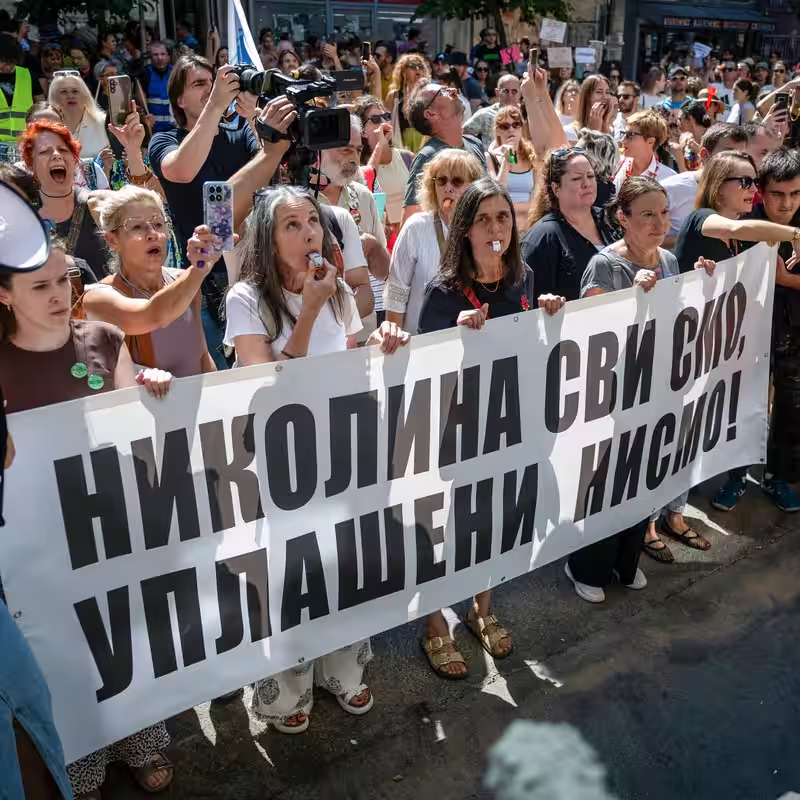Women’s rights are often the first casualty when democratic norms weaken. From Belgrade to Brasília, a troubling pattern is emerging: as governments tighten control and democratic institutions erode, women face escalating threats—from legal rollbacks to digital harassment and physical violence.
Table of Contents
- The Direct Link Between Democracy and Women’s Rights
- Serbia’s Protest Movement and the Targeting of Women
- A Global Pattern of Backsliding
- Why This Matters for Everyone
- Sources
The Direct Link Between Democracy and Women’s Rights
Democracy isn’t just about voting—it’s about voice, safety, and equality. Historically, robust democracies have been more likely to protect and advance women’s rights. But when authoritarian tendencies creep in, women are disproportionately silenced.
At the 2025 Athens Democracy Forum, experts warned that the global rise of strongman politics is directly correlated with efforts to delegitimize women in public life. Tactics include smear campaigns, legal restrictions on reproductive rights, and even state-sanctioned harassment.
Serbia’s Protest Movement and the Targeting of Women
Nowhere is this more evident than in Serbia. Nikolina Sindjelic, a 22-year-old journalism student and pro-democracy activist, became a symbol of both resistance and repression after her August 2025 arrest.
According to her account, Sindjelic was detained by a special police unit during a peaceful protest in Belgrade. She alleges she was held for hours in a garage, physically assaulted, and threatened with sexual violence by the unit’s commander. Days later, intimate photos of her—taken when she was a minor—were leaked on pro-government media and social platforms.
“They didn’t just want to punish me,” Sindjelic told local reporters. “They wanted to shame me into silence.”
Her case is not isolated. Female protesters across Serbia report similar tactics: surveillance, online doxxing, and sexualized threats designed to drive women out of activism. Yet, rather than retreating, Serbian women have organized louder. In September 2025, a group of female students received the Conquering Freedom Award from the Maja Maršićević Tasić Foundation for their courage in defending democracy.
A Global Pattern of Backsliding
Serbia is part of a broader trend. According to data from the Freedom House and the UN Women, countries experiencing democratic decline show a 68% higher likelihood of enacting laws that restrict women’s bodily autonomy, political participation, or access to justice.
| Country | Democratic Decline (2020–2025) | Women’s Rights Rollbacks |
|---|---|---|
| Serbia | Downgraded to “Hybrid Regime” | Surge in image-based sexual abuse of activists |
| Hungary | Constitutional erosion | Bans on gender studies; anti-LGBTQ+ laws affecting women |
| India | Press freedom decline | Increased online harassment of female journalists |
| Brazil | Weakened electoral oversight | Cuts to domestic violence shelters |
These aren’t coincidences. Authoritarian regimes often frame gender equality as a “Western import” or a threat to “traditional values”—a convenient excuse to consolidate power by marginalizing half the population.
Why This Matters for Everyone
When women are pushed out of public life, societies lose critical perspectives on policy, justice, and community well-being. Research from the World Bank shows that inclusive democracies with strong female representation are more resilient to corruption and more effective in crisis response.
Moreover, the weaponization of personal data—like the non-consensual sharing of intimate images—sets a dangerous precedent for digital privacy and freedom of expression for all citizens.
As one Athens Democracy Forum panelist put it: “You can’t have real democracy without gender justice. They’re two sides of the same coin.”
What Can Be Done?
- Support independent media that amplifies women’s voices
- Pressure tech platforms to combat image-based abuse
- Back international watchdogs monitoring democratic backsliding
- Elevate local feminist movements through funding and visibility




